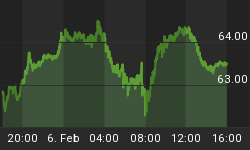Greece may not be enough. Further economic bodies may be needed for the funeral pyre of Keynesian economics. While one after another nation demonstrates the critical flaws inherent to this dogma, governments seem to simply ignore the ramifications. Keynesian economics has only one terminal phase, and that is not prosperity but bankruptcy.
In the 1930s, in the middle of another grand economic collapse engineered by the Federal Reserve, Keynes convinced politicians to use government spending to compensate for the drop in aggregate demand. Out of that was born the idea that governments could spend in unlimited fashion, financing that spending by borrowing or printing money. Prosperity was to be created out of government debt, not effective policies. That notion was so appealing to the politicians.
Greece simply carried Keynesianism to an extreme. Government workers and pensioners were to receive excessive salaries and annuities, financed by government debt, in exchange for votes. Keynesianism evolved into quite simply the substitution of government provided incomes for earnings from private activities. As we will observe in Greece, and likely in Spain, Portugal, and England, the terminal stage for a debt-financed lifestyle is a lower standard of living.
Keynesian economics, through government intervention in the real economy, creates distortions. Rather than investors placing their money at risk in sound business ventures, they are seeking to extricate it from those unsound economies. Rather than investing in those enterprises that would provide tomorrow's economic growth, wealth is hiding in U.S. government debt. With $13 trillion of debt, the U.S. government has provided plenty of hiding space.

One of those economic distortions is pictured in the first graph, above. Rather than the value of the dollar serving as a warning signal and economic policy disciplinarian, it has become the safe have for global wealth escaping the collapse of Keynesian economies. As is readily apparent in that chart, the value of the U.S. dollar has not collapsed as so many predicted in December. On the contrary, it may be poised for a breakout to the upside.
Gold has again correctly assessed the Keynesian economic policies in places like Europe and England. Gold denominated in those currencies has rallied, saving investors from the abyss of paper assets. However, investors should remember one all important rule. Crises, such as Greece, are reasons to own Gold, never a reason to buy Gold. That is so especially true in the current period, one dominated by an overheated level of speculative buying in Gold.
As to the current level of US$Gold, one should be prepared for possible disappointment. No reason exists to sell one's $Gold given the negative long-term prospects for the U.S. under Keynesian mismanagement. However, current market prices for $Gold may have lost contact with the fundamentals.
Our second chart, above, is of the ratio of US$Gold price to the quantity of U.S. dollars, M-2 NSA. Solid black line is the mean of that ratio for the period of time shown. Upper line, in green, is the mean plus two standard deviations. Based on the data in the chart, the probability of the ratio being above the green line is about 1 out of 6. Currently, $Gold, based on this measure, should trade lower.
In short, the price currently being placed on $Gold should not persist. Yes, the speculative traders now in control of the Gold market can push it higher in the short run. However, ultimately the price of $Gold should reflect the fundamentals. And we note further, gravity is stronger than all the speculative hedge funds collectively.

We have created from two measures our SPECULATION BAROMETER for those interested in small Gold mining companies. It is in particular designed for those that invest in the GDXJ. It is currently showing a maximum speculative reading. That high reading suggests that now is neither the time to be buying $Gold nor the time to be buying small Gold stocks. See www.valueviewgoldreport.com for a chart of this new measure.
GOLD THOUGHTS is from Ned W. Schmidt,CFA,CEBS as part of a joyous mission to save investors from the financial abyss of paper assets. He publishes The Value View Gold Report, monthly, and Trading Thoughts, weekly. To receive these reports, go to www.valueviewgoldreport.com.















